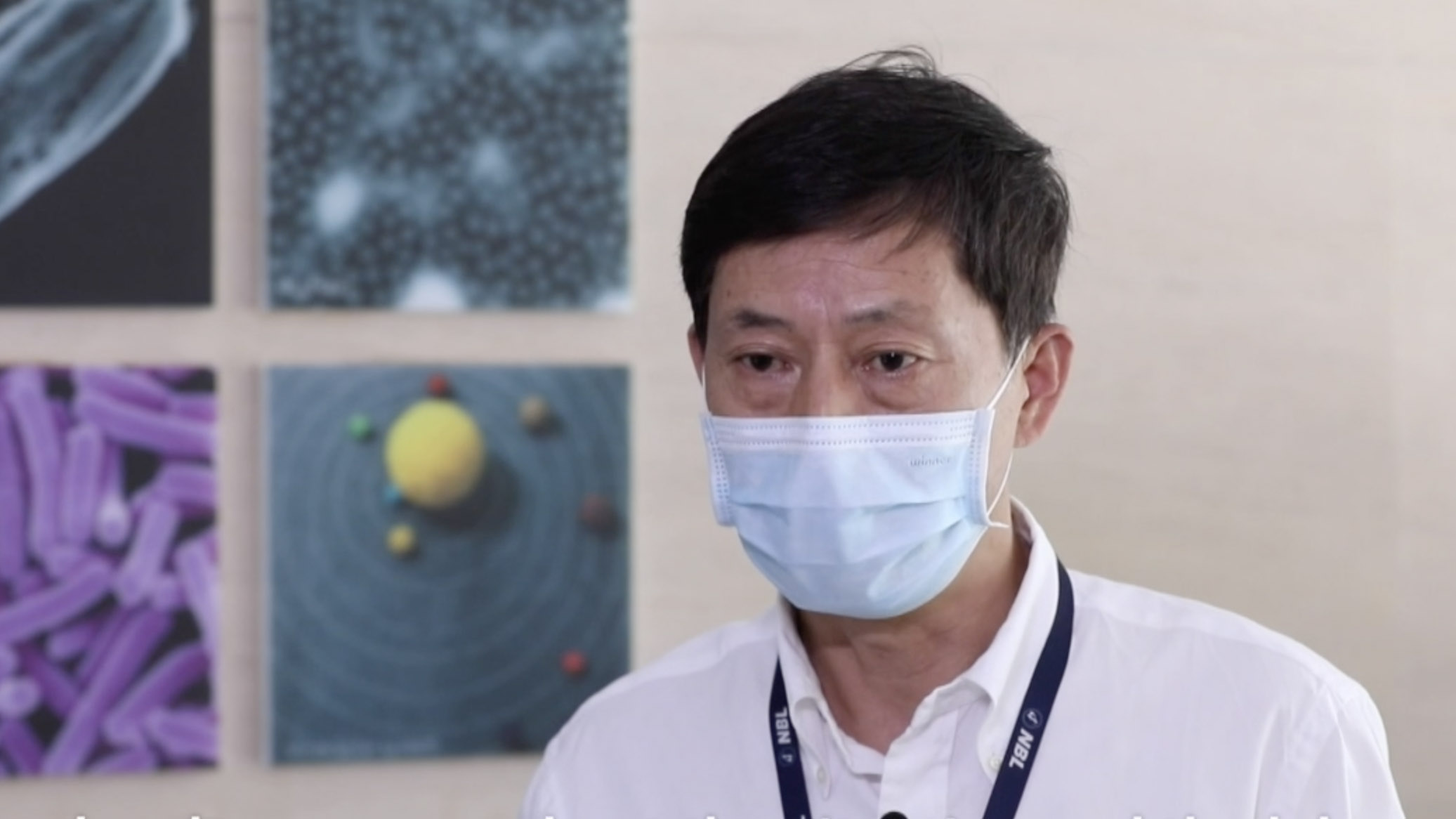06:06

Editor's note: The Wuhan Institute of Virology has been in the eye of a storm since the novel coronavirus disease, now known as COVID-19, engulfed the world. Leaving almost nowhere untouched, the virus of unknown etiology has so far infected over 5 million people globally, with a death toll exceeding 338,000. It has forced shutdowns at various countries worldwide, crippling their economies and upending people's lives overnight.
Since the first known cases were reported last December, scientists have raced to find the origins of the virus in the hope of developing a vaccine. In the meantime, a blame game is going on, with conspiracy theories ranging from the virus "leaking" from the Wuhan Ilab to China "concealing" crucial information, despite repeatedly reported conclusion from scientists that it originated from nature.
CGTN spoke to three top epidemiologists from the institute to get their take on these rumors, how they view the outbreak and progress on cooperating with their international counterparts. The following interview with Yuan Zhiming (Yuan), researcher at the Wuhan Institute of Virology and Director of Wuhan National Biosafety Laboratory, is the third in this series. Here you can find the first, and second stories.
CGTN: What is your response to the rumors and conspiracy theories that have centered on the Wuhan Institute of Virology since the outbreak?
Yuan: The outbreak was unexpected. Under the leadership of the Communist Party of China Central Committee and the support of all Chinese people, people in Wuhan have been making all-out efforts to fight the virus and save lives. But at this time, an American senator spread the rumor that the virus came from the Wuhan institute. All working staff at the institute were engulfed in a storm of rumors, bearing huge pressure.
Against this backdrop, we asked our staff members to endure the pressure, adjust their mindsets and fully devote themselves to the race against the coronavirus. We've adopted a wartime working mode for the research and development. We've carried out screening of antiviral drugs, established animal models, make efforts in the development of vaccines and started the preparation of antiserum.
Our test kits have been approved for production and application. Our results on antiviral drug screenings have also been included in the diagnosis and treatment protocols for COVID-19. Our inactivated vaccine against COVID-19 has now entered the first and second phases of clinical trials.
Besides, by taking advantage of our platform, resources and technology, we've also helped research teams nationwide with the applications of convalescent plasma, clinicopathological anatomy, disinfectant development and environmental safety assessment, which greatly supported the nationwide scientific research and development work against COVID-19.
In fact, the Wuhan Institute of Virology has always maintained close cooperation with the international academic community and international society. It's been open and transparent. So are its labs.
I am very proud to say that the physical facilities and management level of our labs are as high as those in Europe and the U.S. We also have a team of experts in biosafety, technology and management. Our labs have been operating legally and safely. In its years of operation, there have been no accidents of pathogen leaks or human infections.
Any pandemic would no doubt spark fear and generate feelings of helplessness, due to a lack of information on infectious diseases. And many people would naturally link an area's outbreak to its nearest labs. As people come to know more about the situation, rumors will gradually disappear.
CGTN: Since the outbreak, how did the rumors and conspiracy theories affect the researchers here? How have they been doing?
Yuan: I have talked to many of our scientists. During these times, I fully understand their sufferings and difficulties. All the scientific personnel, though wronged and stressed, are still racing against the virus to provide knowledge and information as much as they can to let people know more about the virus and make real contributions to the fight to contain its spread.
We are from Wuhan and we've seen our fellow Wuhan people suffer from the epidemic. Compared with their pain and loss, no matter how much we've been wronged and how big the pressure we're under, our pain is much smaller and we have no reason not to do our best.
CGTN: How about your cooperation with U.S. scientists?
Yuan: For a long time, we have maintained close cooperation with our U.S. counterparts in the research of virology. We've also established many joint projects. The research led by Professor Shi Zhengli over bats is an example. In fact, following the cooperation with the U.S., we've achieved a better understanding of the viruses and our U.S. counterparts have also known more about the progress of science and technology China has made. It will lay a good foundation for the following researches and may possibly help the development of infectious diseases and virology.
In the fields of biosafety and the prevention of infectious diseases, we have been in good contact with the scientific community in the United States. In particular, we have established a good relationship with the University of Texas Medical Department.
The director of the Galveston National Laboratory at the University of Texas Medical Branch has visited our lab. Our ideas on management, operation, staff training and information-sharing turned out to be quite similar. So, he said he's willing to help us in staff training and scientific research. We also hope to continuously improve our technological support capabilities and personnel levels through the exchanges.
It was because of this kind of cooperation that our institute is able to gain international recognition in infectious disease research. Now I believe we need to broaden the channels of international cooperation and provide better conditions for scientific research, so as to attract scientists from around the world to work in our lab and make this lab a platform for international exchanges and cooperation.